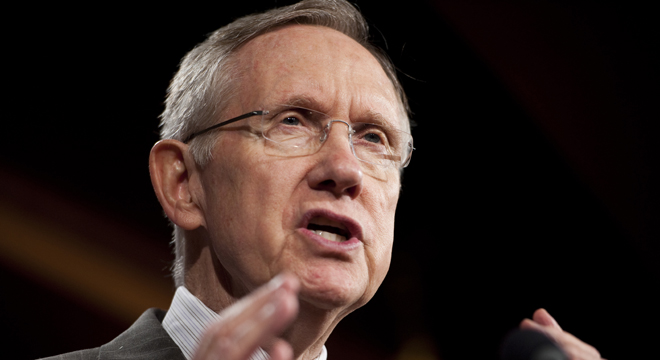Updated at 5:45 a.m., Friday, Jan. 25, 2013
In two votes Thursday evening, the Senate overwhelmingly approved changes to the rules of the chamber, including the rules governing the filibuster. The final votes were 78-16 and 86-9. The approval of the changes was a disappointing ending for reformers, who had sought to dramatically weaken the filibuster, which has come to be used in recent years by the Republican minority with a frequency unprecedented in Senate history.
The votes Thursday culminated an extended period of public debate and Senate negotiations over the future of the filibuster. Underlying that debate were deep concerns about the ability of the Senate to function as a governing body. Senate Majority Leader Harry Reid (D-NV) had taken the somewhat unusual procedural step of not adjourning after the first day of the current session in early January. The effect of that move was to extend the first day of Senate business for most of January in order to give himself more flexibility to pass the rules changes with a simple majority, something that could only be done on the first day.
In the end, however, Reid declined to push through more extensive reforms on a simple majority vote — the so-called “nuclear option.” Instead, Reid reached an accord with Senate Minority Leader Mitch McConnell (R-KY) for much more modest rules changes than he himself had initially supported. “Today, we took steps towards ending gridlock in the Senate, and making this body a more efficient place while still respecting the rights of the minority,” Reid said in a statement after the votes.
The details of the agreed-upon changes emerged earlier Thursday. They permit a Senate majority to bypass the filibuster on a motion to proceed to debate on the condition that either a group of senators on each side of the aisle consents, or the minority is guaranteed the chance to offer amendments. They limit debate on sub-cabinet and district court nominations and reduce the time between cloture and final confirmation from 30 hours to two. They also reduce the number of cloture motions required to go to conference with the House.
Reid acknowleged that the changes implemented Thursday fell short of the reforms pushed by Democratic Sens. Tom Udall (D-CO) and Jeff Merkley (D-OR). “This proposal does not go as far as they and others would have wanted, Reid said in the statement. “But it is a step forward.”
Before the vote, but after it became clear that the support was not there for more substantial reforms, Merkley released a statement vowing to continue to press for reforms if today’s changes proved ineffective at ending gridlock in the Senate. “If the modest steps taken today do not end the paralysis the Senate currently suffers, many Senators are determined to revisit this debate and explore stronger remedies,” Merkley said.
President Obama welcomed the rules changes. “I am hopeful that today’s bipartisan agreement will pave the way for the Senate to take meaningful action in the days and weeks ahead, he said in a statement issued by the White House.










